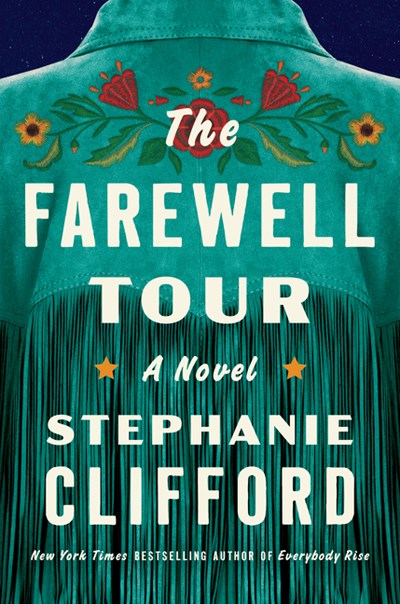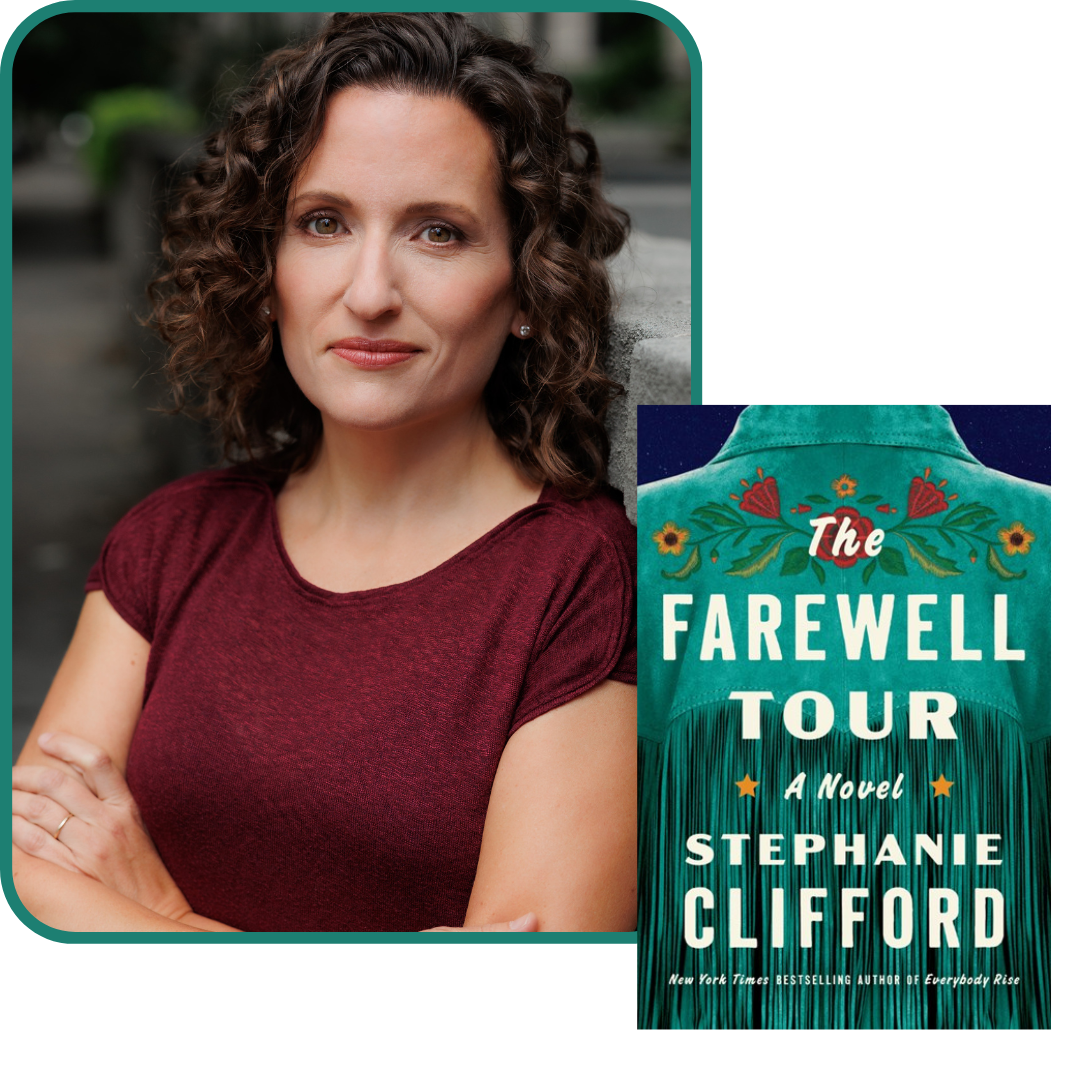Author of THE FAREWELL TOUR, our March featured staff pick
***Now out in paperback!***
Get out your headphones, THE FAREWELL TOUR will make you want to crank up the music. But first, we are delighted to introduce you to author Stephanie Clifford, who took time out of her busy book launch to chat with us. (Read Assistant Manager Allison’s review of THE FAREWELL TOUR.)

Q: How big a music fan were you before writing THE FAREWELL TOUR? What was the first album you bought with your own money?
A: I’ve always adored music, from opera to musicals to rock, and play piano and guitar. But I didn’t fall in love with country until high school—I grew up in Seattle, and worked one summer in Arkansas doing trail maintenance in a national forest there, where the only radio station we could get was country. Suddenly, I was hooked, and returned to Seattle at the height of the grunge era to listen to, like, Tammy Wynette—no one in Seattle understood what on earth I was doing.

First album—for some reason it wasn’t an album I first bought, but a cassette-tape single: Prince (cool), “Arms of Orion” (not very cool).
Q: What was the idea that sparked this novel?
A: Before I began writing this book, I happened to be on a literature-of-the-American-West kick, so Grapes of Wrath and Cormac McCarthy and Larry McMurtry. The landscapes they wrote about were arid and harsh, and I didn’t recognize them. I felt like there was this missing piece of the “Western” genre, that the Northwest, this place I had grown up in—and which, by the way, takes up a rather large geographical chunk of the West!—was completely ignored. So I began playing with the idea of writing a Western—not a shootout-and-saloons story, but one that considers the myth of the West, and how the landscape shapes its characters—that was set in the historical Northwest.
As I read more and more, I also came to feel that even for writers who were women or were sympathetic to women, like Wallace Stegner or Willa Cather, in the era I was writing about—the book starts in the 1920s—the women in these books literally didn’t get to leave their houses. They were stuck inside, cooking, cleaning, and sewing. And I thought of the fierce Northwest women I knew, who would basically skin a deer in the morning and then put on lipstick and go shopping at I. Magnin’s downtown in the afternoon, and I thought, just try keeping a Northwest woman inside her house; good luck.
That became the genesis for Lil, the main character. I wanted to get across the grit and battle scars that so many Northwest women of that era had, and also the desire to survive, and give her a life where she has to be out in the world—in this case, via singing country music—and see what happens.
Q: What was interesting to you about this particular time in history, women’s history or music history?
A: First of all, it’s just this incredibly rich time to imagine and research—Lil’s born on the cusp of the Depression, gets her start as a singer in WWII-era Tacoma, lands in Nashville in its golden era—all a gold mine for a writer. I also wanted her to have to navigate her career and art in a time that wasn’t very open to working women generally, and certainly not in the country music. She’s going to have to make real concessions in order to succeed, which is always interesting to write about.
Q: What were your top 3 songs of 2022? What would be your picks for saddest song? Happiest?
A: Because I was so deep into research for 2022, my Spotify most-played for the year looks like it’s out of 1962! Tammy Wynette, “Apartment No. 9” – Tammy makes everything sound heartbreaking; Sister Rosetta Tharpe, “Didn’t It Rain” – an incredible, pioneering guitar player; “He Is Fine,” Secret Sisters, a fabulous duo. Happiest – I love a musical number for a pick-me-up (my first book, Everybody Rise, has tons of musical references, and the title is from a Sondheim song) – so maybe a classic like “Seventy-Six Trombones.” Saddest, there’s a scene in the book where the characters are discussing the saddest country song, and I think Lil gets it right when she suggests Emmylou Harris’s “Boulder to Birmingham,” written after Harris’s musical partner, Gram Parsons, overdosed and died. Just try not to cry when you hear Emmylou sing that one.
Q: What are you reading and recommending these days?
A: I just (accidentally) read back-to-back two wonderful, thoughtful books on women during times of civil war/domestic terrorism in the ’70s: V.V. Ganeshananthan’s Brotherless Night, set in the Tamil region of Sri Lanka during the civil war there; and Louise Kennedy’s Trespasses, set during the Troubles in Northern Ireland. The books made perfect companions and almost talked to each other.

